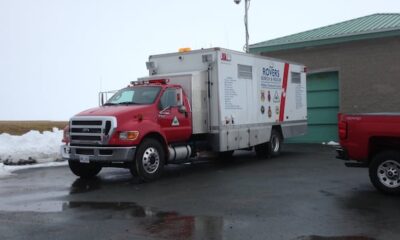Education
Coffee Prices Surge as Bean Shortages Hit Global Markets

Rising coffee prices have captured attention, driven by significant bean shortages affecting global markets. Dr. Mike von Massow, a professor at the Department of Food, Agricultural and Resource Economics, spoke with The Canadian Press and CBC News to shed light on the factors contributing to the increase in costs for consumers.
Understanding the Price Surge
According to Dr. von Massow, the current spike in coffee prices is primarily linked to adverse weather conditions and supply chain disruptions. Extreme climate events, including droughts and heavy rainfall in major coffee-producing regions, have drastically reduced the yield of coffee beans. As a result, supply has not kept pace with global demand, pushing prices upward.
Recent reports indicate that coffee prices have surged by as much as 30% over the past year, reflecting a growing concern among consumers and retailers alike. The professor noted that these fluctuations can have a ripple effect, impacting everything from local coffee shops to international brands.
The Broader Impact on Consumers
The implications of these rising prices extend beyond the cost of a morning cup of coffee. Many consumers are starting to feel the pinch, with café prices increasing significantly. For instance, a regular coffee that previously cost $2.50 may now be priced at $3.25 or more in some locations.
Dr. von Massow emphasized that while consumers may notice these changes immediately, the long-term effects on the coffee industry could be even more profound. He pointed out that farmers will face challenges in maintaining their livelihoods if prices do not stabilize, potentially leading to further market volatility.
In addition to price hikes, coffee enthusiasts may also experience a shift in the varieties available. With certain beans becoming scarce, consumers may find their favorite blends harder to obtain. This situation raises questions about the sustainability of coffee production and the need for increased investment in agricultural practices.
As the coffee market grapples with these challenges, industry experts, including Dr. von Massow, advocate for more resilient farming techniques and better resource management to counteract the effects of climate change. Innovative approaches could help stabilize supply and mitigate the impacts of future shortages.
In conclusion, the surge in coffee prices serves as a stark reminder of the challenges faced by the agricultural sector. With ongoing climate issues and supply chain vulnerabilities, the future of coffee pricing remains uncertain, urging consumers to stay informed and adapt to the evolving landscape.
-

 Politics4 weeks ago
Politics4 weeks agoSecwepemc First Nation Seeks Aboriginal Title Over Kamloops Area
-

 World5 months ago
World5 months agoScientists Unearth Ancient Antarctic Ice to Unlock Climate Secrets
-

 Entertainment5 months ago
Entertainment5 months agoTrump and McCormick to Announce $70 Billion Energy Investments
-

 Science5 months ago
Science5 months agoFour Astronauts Return to Earth After International Space Station Mission
-

 Lifestyle5 months ago
Lifestyle5 months agoTransLink Launches Food Truck Program to Boost Revenue in Vancouver
-

 Technology3 months ago
Technology3 months agoApple Notes Enhances Functionality with Markdown Support in macOS 26
-

 Lifestyle3 months ago
Lifestyle3 months agoManitoba’s Burger Champion Shines Again Amid Dining Innovations
-

 Top Stories2 months ago
Top Stories2 months agoUrgent Update: Fatal Crash on Highway 99 Claims Life of Pitt Meadows Man
-

 Politics4 months ago
Politics4 months agoUkrainian Tennis Star Elina Svitolina Faces Death Threats Online
-

 Sports5 months ago
Sports5 months agoSearch Underway for Missing Hunter Amid Hokkaido Bear Emergency
-

 Politics5 months ago
Politics5 months agoCarney Engages First Nations Leaders at Development Law Summit
-

 Technology5 months ago
Technology5 months agoFrosthaven Launches Early Access on July 31, 2025





















